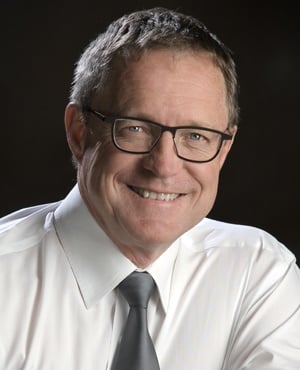
Cape Town – Instead of focusing on black economic empowerment (BEE), government should put more emphasis on educating and supporting girls from poor households to break the cycle of poverty for certain segments of society in South Africa.
This is a new theory put forward by economist Dawie Roodt, who has analysed dependency levels as a measure of wealth.
“The real answer to empowerment in South Africa is not BEE the way we are doing it,” he told Fin24 on Thursday. “The way we are doing it is that we identify a few individuals and make them rich.
“The real answer is to create a system to give support where it matters and that is with black and coloured girls,” he said, specifying these race groups as in need of the most assistance.
“Our education system stinks in South Africa,” he said. “The people that really need it … don’t get the support that they really need.”
Roodt said his thesis is “that if you have many dependants, then you have less of an opportunity to become wealthy”.
In his study, he defined “dependants” as a combination of these factors: How many children in the household, how many elderly people living in the house, how well qualified the residents in the house are and what the unemployment rate is within the house.
“Take a family with six children and four grandparents and the parents are unemployed or poorly qualified,” he said. “Imagine a family with two qualified parents with jobs, with one or two kids: that family has a much better income generating.”
“My thesis is that as your dependency ratio falls, your income goes up,” he said.
His answer to reducing dependency levels is to focus on educating and supporting girls in poor households.
“It is poor girls that need our support,” he said. “They are the most vulnerable. It doesn’t matter what colour they are. It’s not about race. It’s about poor people.
“We have to make sure they have proper skills, we have to make sure they get world class skills development,” he said. “Only then will they participate in the job market.
“There will be a change in values in that society and they will influence their daughters and eventually you will start a virtuous cycle going.”
He said women are the primary parent and decide what’s going to happen to the children. “They are the ones having the kids,” he said.
Looking back at global economics, which he said he has studied at length, Roodt said “the economic breakthrough occurred when we started sending girls to school.
“If you send girls to school, they have fewer children. They also become participants in the job market,” he said. “They influence their children and they especially influence their daughters.
“Usually, what you will find is that in the second generation onwards you… will see women entering the professional job market.
“When you send girls to school for the first time, don’t expect doctors in the first generation,” he said. “But in the second generation onwards, you can start expecting girls becoming professionals.
“Families become wealthier when they have fewer children and start to participate in the job market,” he said. “The longer we send girls to school, the fewer kids they have, the better their qualifications, the more they will participate in the job market.”
* August is Women's Month and Fin24, in collaboration with the Sanlam Enterprise Supplier Development Programme, invites you to help us celebrate and showcase SA's extraordinary women in business.
Read Fin24's top stories trending on Twitter:




 Publications
Publications
 Partners
Partners











